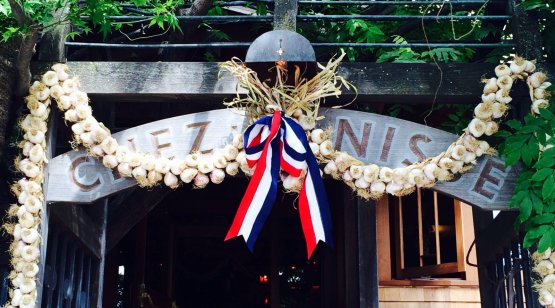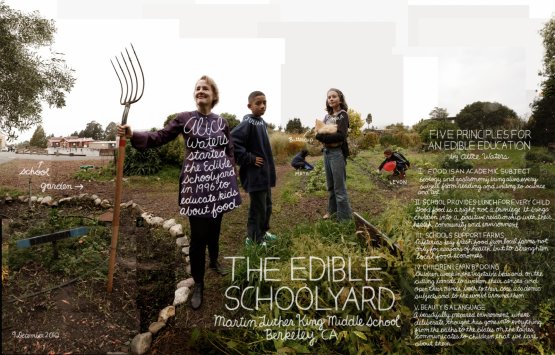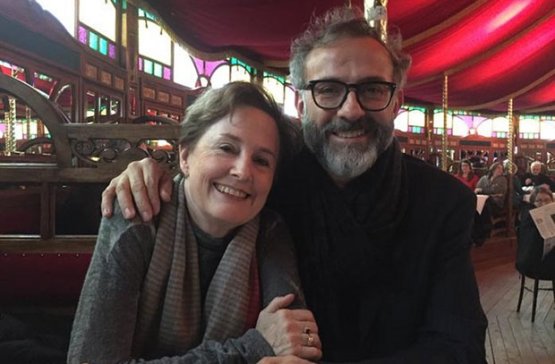A few days ago we called Alice Waters, a real icon in American gastronomy, on the phone. We spoke with her about pizza and the many other Italian influences that over the years she interpreted in her cuisine. Of course we took the chance to discuss other topics too. Starting from the very California cuisine of which Alice Waters is considered the inventor and the most famous interpreter.
What is California Cuisine then? Is it possible, 45 years after the opening of Chez Panisse, to indicate a precise style and an evolution? Is there a heritage of Waters’ work? The chef, an activist, author and vice president of Slow Food International, speaks of “philosophy” rather than “cuisine”.
«This is what I believe I did: try to present an idea of food philosophy. I arrived in France when I was 19 and of course I immediately began to absorb the so-called slow food values. Every day, if not twice a day, I went to a different market and only found local products. I only ate living food, seasonal and absolutely local. And when I was away from Paris, I didn’t find the same things I ate in town. There was the food of Bretagne, of Provence».
In which way did this influence you?
The food culture I discovered in France was made of seasonality and local produce, but also of a direct connection between farmers and the table of people in town. It was made of small restaurants, of giving the right amount of time to each meal, made of beauty and traditions. I tried to take home all of this with me: I wanted to live like the French did, but I was in California.

The entrance of Alice Waters’ iconic restaurant
I had to find different ingredients: food tastes different in California compared to France, so I was always on the look for new scents. I thus discovered the organic agriculture movement in California. When you start to meet farmers, you start to cook what they cultivate best and to understand the importance of simplicity. This is something else I brought back from France, simplicity: in small restaurants they often served you just raw materials, untouched. Like a bowl of wild strawberries, with nothing else. This is how we started to use just the ingredients we found in California.
And that’s how California cuisine was born?
Some people wanted to call it “California Cuisine”. I believe it’s too soon to call it a “cuisine”. Our tradition is still too young. We have much to learn. I believe that having created a food philosophy that later grew and evolved is more important. Today, when I go to New York, only seasonal products are used in high quality restaurants. Then we can say that in California we often use the grill [restaurant
Chez Panisse has two, one on each floor] because with the nice weather people often eat outdoors. We also have strong Asian influences, because many Chinese and Japanese people have moved to California. I also have always used corn and
tortillas, given we’re very close to Mexico. All these elements help us define what we call “California cuisine”.

Alice Waters launched Edible Schoolyard, her project dedicated to food education in the school, back in 1996
I’m very impressed by how some young people are knowledgeable and aware of what is happening to our planet, that we’re in great danger. And they want to take the right decisions. I’ve been working on food education with teenagers for twenty years now and I can say today that when kids learn to cultivate and cook what they cultivated, they eat everything. They learn to cook broccoli with garlic and olive oil and to eat it, all of it. We try to teach these kids an international cuisine, explaining how every tradition has simple, healthy, nourishing recipes.
Can signature cuisine, fine dining, help this change?
Of course, and it’s doing so. In these restaurants I find it a bit hard to get to the end of some very long tasting menus but I see there’s a more and more interesting work being done on vegetables and salads. Thanks to the visibility these chefs have nowadays, thanks to their charisma, they can inspire many people. Think of
Francis Mallmann, in Patagonia: he could convince us to eat... anything! And only thanks to the extraordinary passion for his work. Many things have changed compared to only a decade ago: today great chefs, from
Rene Redzepi to the
Roca brothers and all the others, are very interested in the origins of the food they use, whereas once this was not the case.

Alice Waters with Massimo Bottura
is an extraordinary person. I’ve visited his restaurant and we had long chats on various occasions. I think highly of his vision: I could never imagine cooking like he does, but what he does is very important. I adore the fact he has such a strong connection with tradition, or his curiosity in exploring pairings between ingredients. But I must confess I am most of all a tavern person, I love eating simple food. And in Italy, especially, I’m charmed by the joy of life you can feel in these places. And the fact people never take themselves too seriously. This is a beautiful quality which even
Massimo Bottura has. In general, I’ve been interested in Michelin stars in the Seventies. However, for a long time now I’ve been paying much more attention to the origin of the food I eat: if I’m interested in where the food served in a restaurant comes from, I’ll go. Otherwise, I won’t.
You can also read:
Alice Waters: pizza, and much more